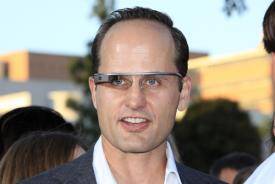An exercise for you. Look around wherever you are (and away from this screen) and carry out an inventory. What do you see that people wouldn’t have seen 60 years ago, in 1951? I’ve been looking at the world this way over the last few months while writing a novel that takes place in 2072. My conclusion is that in a surprising number of areas, life doesn’t change all that much in 60 years. But it a few, it does.
An exercise for you. Look around wherever you are (and away from this screen) and carry out an inventory. What do you see that people wouldn’t have seen 60 years ago, in 1951? I’ve been looking at the world this way over the last few months while writing a novel that takes place in 2072. My conclusion is that in a surprising number of areas, life doesn’t change all that much in 60 years. But it a few, it does.
If you look back at the 20th century, there were two huge technology revolutions that transformed day-to-day life. In the first half of the century, roughly speaking, we went from Kitty Hawk to the space age, and from horses to highways. Physical distance shrank dramatically.
In the second half, we went from the invention of the transistor to the World Wide Web. When it came to information, distance vanished. I don’t need to go on about the information revolution. We’re all living it.
But the funny thing is this. While we were advancing from transistor radios to Google, the transportation revolution slowed down to a crawl. You could argue that it went into reverse. In the 1970s, we were sending humans to the moon and building supersonic aircraft that crossed the Atlantic in a little more than three hours. We can’t do those things anymore. In fact, I would argue that most of the advance in transportation comes from the same information revolution. We jam more computers into cars (and highways), making them smarter and more efficient. But the pistons keep doing work that Henry Ford would understand.
In my novel, which I just sent to my agent on Friday, I asked myself at every juncture how much “Jetsons” to put into it. But I kept reminding myself that 2072, in many areas, probably won’t feel all that different from what we live today. The one difference, and the key focus in the story, has to do with the exponential growth of computing. I’ll detail this in future posts.

If you think about the changes since 1951, they fall into three categories. The same, enhanced, and new. In this picture, we see all three. The couch, the lamp, the cat, the books, the plants, the grandfather clock. They’re all the same (though the cat may beg to differ.) The stereo is an improvement over a 1950s era record player (though not a very big one). Then, if you look closely on the arm of the couch, there’s a small item wrapped in a sickening shade of blue. (It’s whited out by the light.)
That’s the smart phone. It’s easy to say that it changes everything. But that’s not true. It doesn’t replace the cat, the plants or the couch. Yet it and its digital bretheren have a big impact on books and the stereo. And with illuminated screens, I don’t even turn on that light as much as I once did. Such are my thoughts as I work to imagine 2072.








